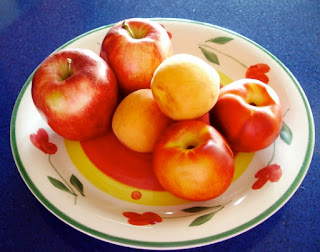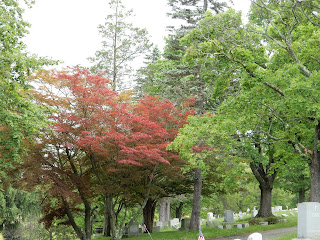OCTOBER is the month of OPINES.
I stare at a patch of pumpkins, tobacco hanging from barn rafters and lovely front-yard arrangements as we go about our daily errands.
I opine the sweltering, soggy days of summer yet look forward to all the changes surrounding us.
I linger a little longer as we swoon over a patch of trees with half-changing leaves, stacks of corn in fields ready to harvest, amazing Azaleas and so much more.
The flooded fields and sweaty days are drying up and we begin to feel a bit cooler.
Time for blankets and an early morning fire in our fireplace.
Time for hot meals and steamy soups.
Time for more lingering over wise words I find in my morning meditations.
Enjoy!
The harvest is plenty but the workers are few.
Come into this time of harvest and linger awhile over the wise words of others. morning offering.com
We may opine over past joys but look forward to new words of thought-filled encouragement.
We may opine over past joys but look forward to new words of thought-filled encouragement.
October 1
"There are in truth three states of the converted:
In the beginning they experience the charms of sweetness;
in the middle the contests of temptation;
in the middle the contests of temptation;
and in the end the fullness of perfection.”
Gregory the Great
10-2 "What really hurts is not so much suffering as the fear of suffering.
If welcomed trustingly and peacefully, suffering makes us grow.
It matures and trains us, purifies us, teaches us to love
unselfishly, makes us poor in heart, humble, gentle, and compassionate toward our neighbor.
unselfishly, makes us poor in heart, humble, gentle, and compassionate toward our neighbor.
Fear of suffering, on the other hand, hardens us in self-protective, defensive attitudes, and often leads us to make irrational choices with disastrous consequences.” Jacques Philippe, Interior Freedom
10-3 "The fruit of silence is prayer,
the fruit of prayer is faith,
the fruit of faith is love,
the fruit of love is service,
the fruit of service is peace.”
the fruit of prayer is faith,
the fruit of faith is love,
the fruit of love is service,
the fruit of service is peace.”
Mother Teresa of Calcutta
10-4 Quotes from St. Francis of Assisi, whose life we celebrate today.
[Also hubby's birthday]
All the darkness in the world cannot extinguish the light of a single candle.
Where there is charity and wisdom, there is neither fear nor ignorance.
Where there is patience and humility, there is neither
anger nor vexation.
anger nor vexation.
Where there is poverty and joy, there is neither greed nor avarice.
Where there is peace and meditation, there is neither anxiety nor doubt.
It would be considered a theft on our part if we didn’t give to someone in greater need than we are.
A man truly loves his enemy when he is not offended by the injury done to himself, but for love of God feels burning sorrow for the sin his enemy has brought on his own soul, and proves his love in a practical way.
10-5 Meditation bridges the gap between hearing from God and speaking to him.
In meditation, we pause and reflect over his words. We roll them over in our minds and let them ignite our hearts. We “warm ourselves at the fires of meditation.”
We pose questions and seek answers.
We go deep in God’s revelation, take it into our very souls, and as we are being changed by his truth, we respond to
him in prayer.
him in prayer.
As Matthew Henry says, “As meditation is the best preparation for prayer, so prayer is the best issue of meditation.”
David Mathis desiringGod.org
David Mathis desiringGod.org
10-7 "When we come into church from the outside our ears are filled with the racket of the city, the words of those who have accompanied us, the laboring and quarreling of our own thoughts, the disquiet of our hearts’ wishes and worries, hurts and joys.
That we listen at all is something; not everyone does.
It is even better when we pay attention and make a real effort to understand what is being said.
But all this is not yet the attentive stillness in which God’s word can take root.
This must be established before the service begins, if possible in the silence on the way to church, still better in a brief period of composure the evening before.”
Romano Guardini
10-8 “Faith is to believe what you do not see; the reward
of this faith is to see what you believe.” Augustine
of this faith is to see what you believe.” Augustine
10-9 "Consider God's charity. Where else have we ever seen someone who has been offended voluntarily paying out his life for those who have offended him?” Catherine of Siena
10-10 "For God did not give us a spirit of cowardice, but rather a spirit of power and of love and of self-discipline.” 2 Timothy 1:7
 10-11 "Once, while I was wondering why Our Lord so dearly loves the virtue of humility, the thought suddenly struck me, without previous reflection, that it is because God is the supreme Truth and humility is the truth, for it is the most true that we have nothing good of ourselves but only misery and nothingness: whoever ignores this, lives a life of falsehood. They that realize this fact most deeply are the most pleasing to God, the supreme Truth, for they walk in the truth.” Teresa of Avila, Interior Castle
10-11 "Once, while I was wondering why Our Lord so dearly loves the virtue of humility, the thought suddenly struck me, without previous reflection, that it is because God is the supreme Truth and humility is the truth, for it is the most true that we have nothing good of ourselves but only misery and nothingness: whoever ignores this, lives a life of falsehood. They that realize this fact most deeply are the most pleasing to God, the supreme Truth, for they walk in the truth.” Teresa of Avila, Interior Castle
Archangle Michael means “Who is like God?" He is the warrior angel, the famous foe of Satan, who is the champion of God’s people and guardian and protector of the Church (Rev. 12:7-9).
Archangel Gabriel means “Power of God." He is the messenger or herald angel most famous for appearing to the Virgin Mary at the Annunciation (Luke 1:11-38).
 10-11 "Once, while I was wondering why Our Lord so dearly loves the virtue of humility, the thought suddenly struck me, without previous reflection, that it is because God is the supreme Truth and humility is the truth, for it is the most true that we have nothing good of ourselves but only misery and nothingness: whoever ignores this, lives a life of falsehood. They that realize this fact most deeply are the most pleasing to God, the supreme Truth, for they walk in the truth.” Teresa of Avila, Interior Castle
10-11 "Once, while I was wondering why Our Lord so dearly loves the virtue of humility, the thought suddenly struck me, without previous reflection, that it is because God is the supreme Truth and humility is the truth, for it is the most true that we have nothing good of ourselves but only misery and nothingness: whoever ignores this, lives a life of falsehood. They that realize this fact most deeply are the most pleasing to God, the supreme Truth, for they walk in the truth.” Teresa of Avila, Interior Castle
10-12 Living a virtuous life helps us please God and be
filled with His grace by choosing… the right action, in the right way, at the right time, for the right reasons. morningoffering.com
filled with His grace by choosing… the right action, in the right way, at the right time, for the right reasons. morningoffering.com
10-13 These are the only three angels mentioned by name in Sacred Scripture.
Archangle Michael means “Who is like God?" He is the warrior angel, the famous foe of Satan, who is the champion of God’s people and guardian and protector of the Church (Rev. 12:7-9).
Archangel Gabriel means “Power of God." He is the messenger or herald angel most famous for appearing to the Virgin Mary at the Annunciation (Luke 1:11-38).
Archangel Raphael means “God has healed." He is a companion and healing angel, most famous for curing a man's blindness and for traveling with Tobiah in the book of Tobit (chapter 12).
 10-14 "God, the Lord, is my strength; He makes my feet like the feet of a deer, and makes me tread upon the heights.”
10-14 "God, the Lord, is my strength; He makes my feet like the feet of a deer, and makes me tread upon the heights.”
Habakkuk 3:19
 10-14 "God, the Lord, is my strength; He makes my feet like the feet of a deer, and makes me tread upon the heights.”
10-14 "God, the Lord, is my strength; He makes my feet like the feet of a deer, and makes me tread upon the heights.” Habakkuk 3:19
10-15 “If you rightly bear your cross, it will bear you.” Thomas à Kempis
10-16 Jerome (347 - 420) was born to a wealthy pagan family in Dalmatia. He was sent to Rome for his schooling and there converted to Christianity, being baptized by
Pope Liberius.
He studied theology and traveled widely to the important intellectual and theological centers across the newly-established Christian Empire.
Pope Liberius.
He studied theology and traveled widely to the important intellectual and theological centers across the newly-established Christian Empire.
Jerome was ordained a priest at Antioch and lived many years as a hermit in a nearby desert. He spent 30 years writing the Latin translation of the Bible, the Latin Vulgate, and is known as one of the most influential and orthodox theologians in the life of the early Church. [A Doctor of the Church]
10-17 Anselm [1033-1109] Doctor of the church on par with Augustine said, “ I do not seek to understand that I may believe, but I believe in order to understand.”
10-18 "Occupy your mind with good thoughts, or the enemy will fill them with bad ones. Unoccupied, they cannot be.” Sir Thomas More
10-19 “You don't want to talk in high-falutin’, ridiculous abstractions that nobody understands. Just try to make things plain and clear.
The one thing I try to do when I want to persuade someone is never start with my assumptions, because if I do, we're not going to get anywhere.
You have to figure out what the other person believes, and then try to draw a line from what they believe into what you believe in by showing them a logical sequence. But you’ve got to lead them along and you have to have it clear in your head from the beginning or you'll never get there.” Charles Krauthammer
 10-20 The word of Christ could make out of nothing that which was not; can it then not change the things which are into that which they were not? Ambrose
10-20 The word of Christ could make out of nothing that which was not; can it then not change the things which are into that which they were not? Ambrose
 10-20 The word of Christ could make out of nothing that which was not; can it then not change the things which are into that which they were not? Ambrose
10-20 The word of Christ could make out of nothing that which was not; can it then not change the things which are into that which they were not? Ambrose
10-21 "In everything, whether it is a thing sensed or a thing known, God Himself is hidden within.” Bonaventure
10-22 "For there are three ways of performing an act of mercy: the merciful word, by forgiving and by comforting; secondly, if you can offer no word, then pray - that too is mercy; and thirdly, deeds of mercy.” Faustina Kowalska
10-23 According to one tradition, Cleophas (also known as Alphaeus) [reference story of two men meeting Christ on the Road to Ammaeus after Jesus’s crucifixion], was a relative of Jesus. He was the brother of Joseph, and therefore was Jesus' uncle.
Cleophas was the husband of Mary of Cleophas (one of the three Mary’s who saw Christ’s empty tomb) and they had three sons we know by name: Simon, James the Less, and Jude. Cleophas, through his daughter Mary Salome, was also grandfather to James the Greater and John. Therefore three of his sons and two of his grandsons
were among the Twelve Apostles.
were among the Twelve Apostles.
10-24 "For he will command his angels concerning you to guard you in all your ways. On their hands they will bear you up, so that you will not dash your foot against a stone.” Psalm 91:11-12
10-25 “If you are thinking of becoming a Christian, I
 warn you, you are embarking on something which is going to take the whole of you, brains and all.
warn you, you are embarking on something which is going to take the whole of you, brains and all.
 warn you, you are embarking on something which is going to take the whole of you, brains and all.
warn you, you are embarking on something which is going to take the whole of you, brains and all.
But, fortunately, it works the other way around.
Anyone who is honestly trying to be a Christian will soon find his intelligence being sharpened: one of the reasons why it needs no special education to be a Christian is that Christianity is an education itself.” C. S. Lewis, Mere Christianity
10-26 "All the darkness in the world cannot extinguish the light of a single candle.” St. Francis of Assisi
The one thing I do believe is that of all the possible views of God, atheism is the least plausible.
The idea that there's no meaning or purpose or origin--that the Universe is as it always was, is to me entirely implausible for reasons of physics, apart from faith.
Because if you reason back to first causes, and if you’re an atheist, you get to a logical contradiction.”
10-30 “As the Apostle Paul points out, Christ never meant that we were to remain children in intelligence: on the contrary.
He told us to be not only ‘as harmless as doves’, but also ‘as wise as serpents’.
He wants a child’s heart, but a grown-up’s head.
He wants us to be simple, single-minded, affectionate, and teachable, as good children are; but He also wants every bit of intelligence we have to be alert at its job, and in first-class fighting trim.” C.S. Lewis, Mere Christianity
10-31 “Halloween use to be a pagan Celtic autumn festival of Samhain celebrated in the British isles before the arrival of Christianity. Historians recorded that Samhain involved lighting bonfires against the onset of winter darkness and making offerings of crops and livestock to appease threatening otherworldly forces.
In the mid-8th century Pope Gregory III declared that All Saints Day (All Hallows Day) would be celebrated on November 1. So the night before, October 31, would become All Hallows Eve or Halloween.
The Christian holiday was observed with masses and prayers, but in parts of the British Isles people also continued the old rituals associated with Samhain - building bonfires, ringing bells and lighting candles to scare away evil spirits.
There was also the practice of ‘souling’ when people would go door to door begging for ‘soul cakes’ - small current biscuits - which were offered in exchange for prayers.
In the Middle Ages people would disguise themselves in order to fool any evil spirits that might be wandering about.
Halloween may have been brought to America by the Scots who settled in Appalachia during the colonial period but it did not become well known until the 19th century when Irish immigrants introduced their Halloween traditions, including masquerading and parading through the neighborhood asking for fruit, nuts and coins. [Edited from an article in WSJ by Dr. Regina Hansen, Master Lecturer of Rhetoric at Boston University.]
























No comments:
Post a Comment